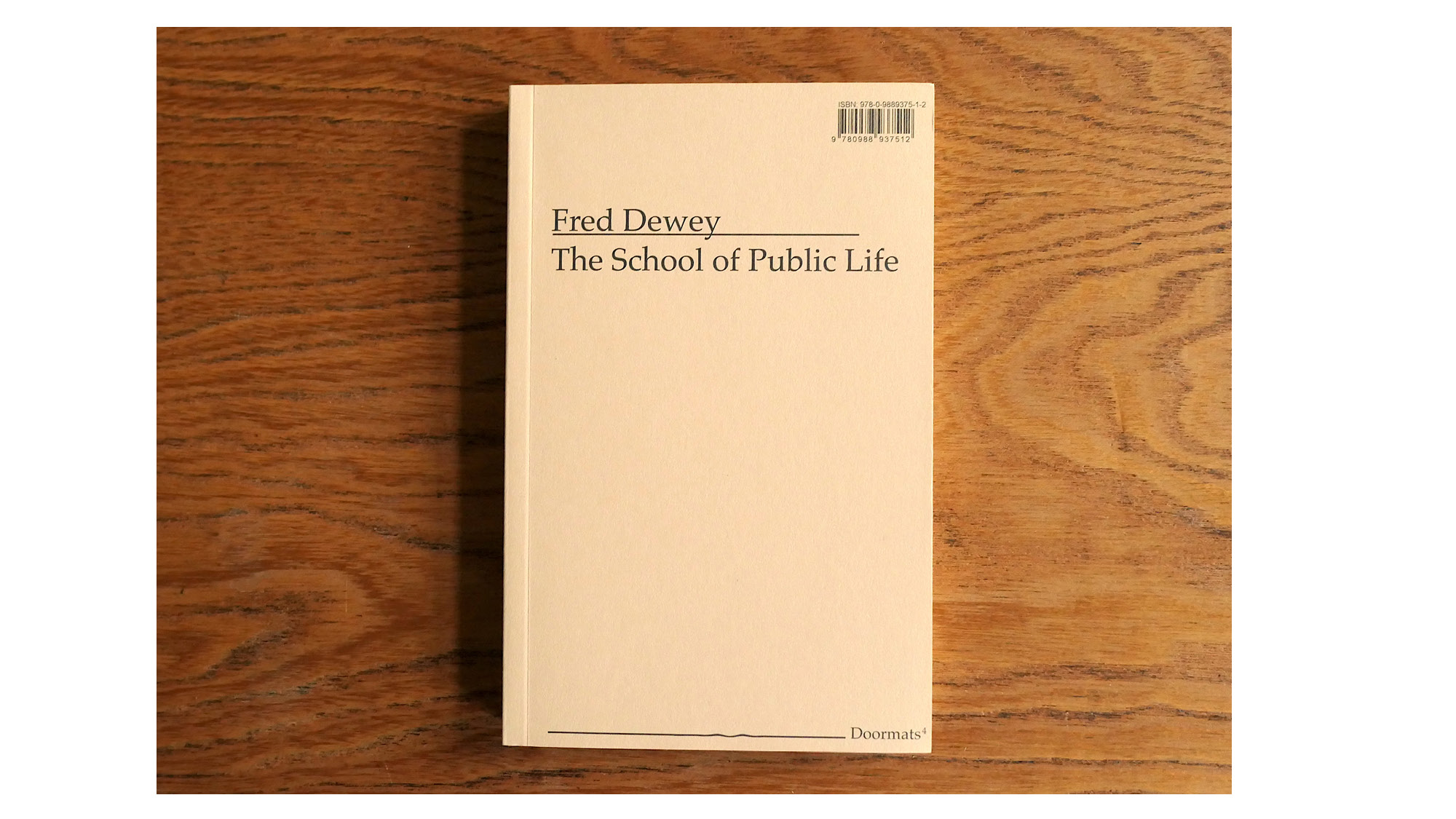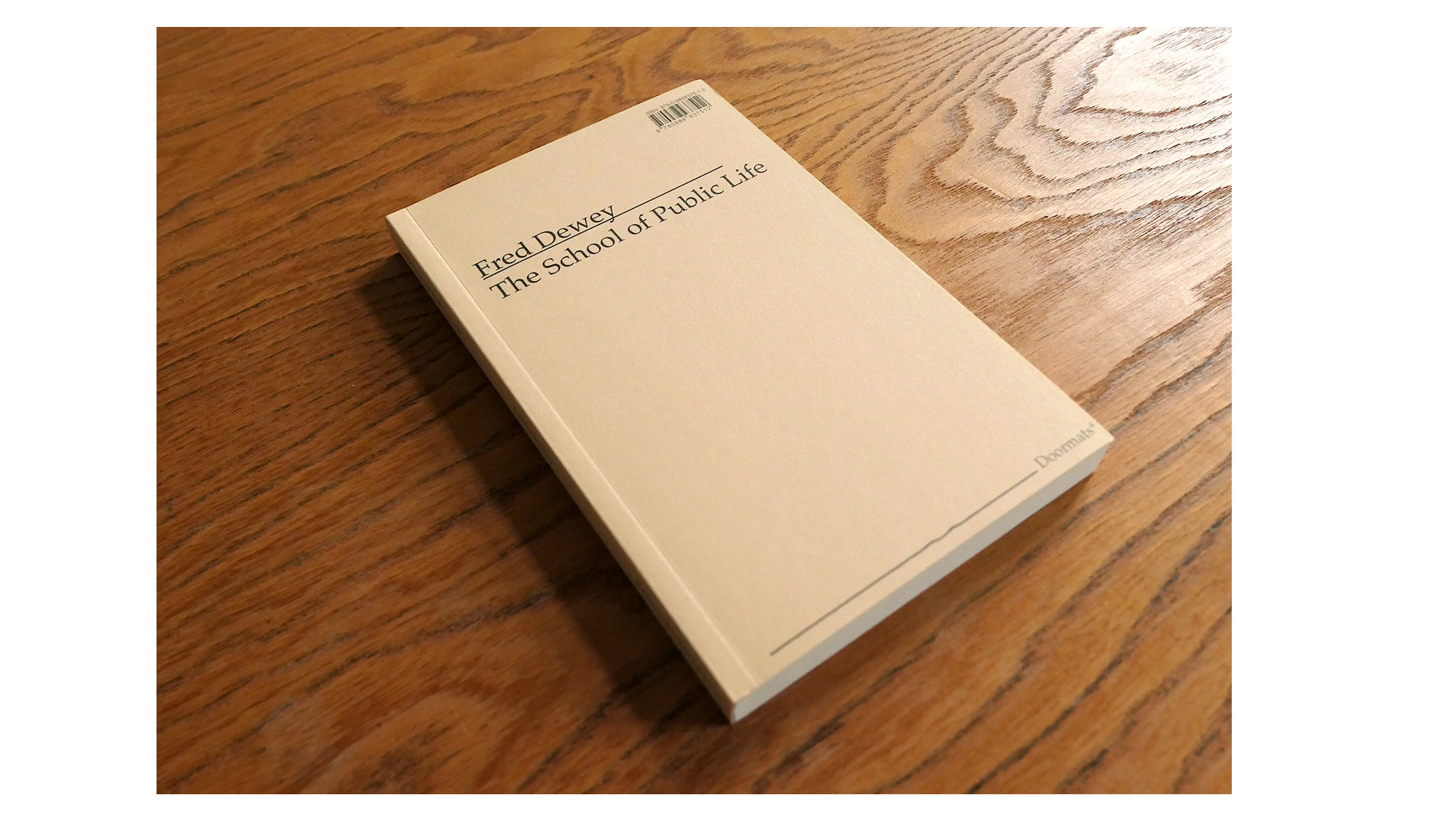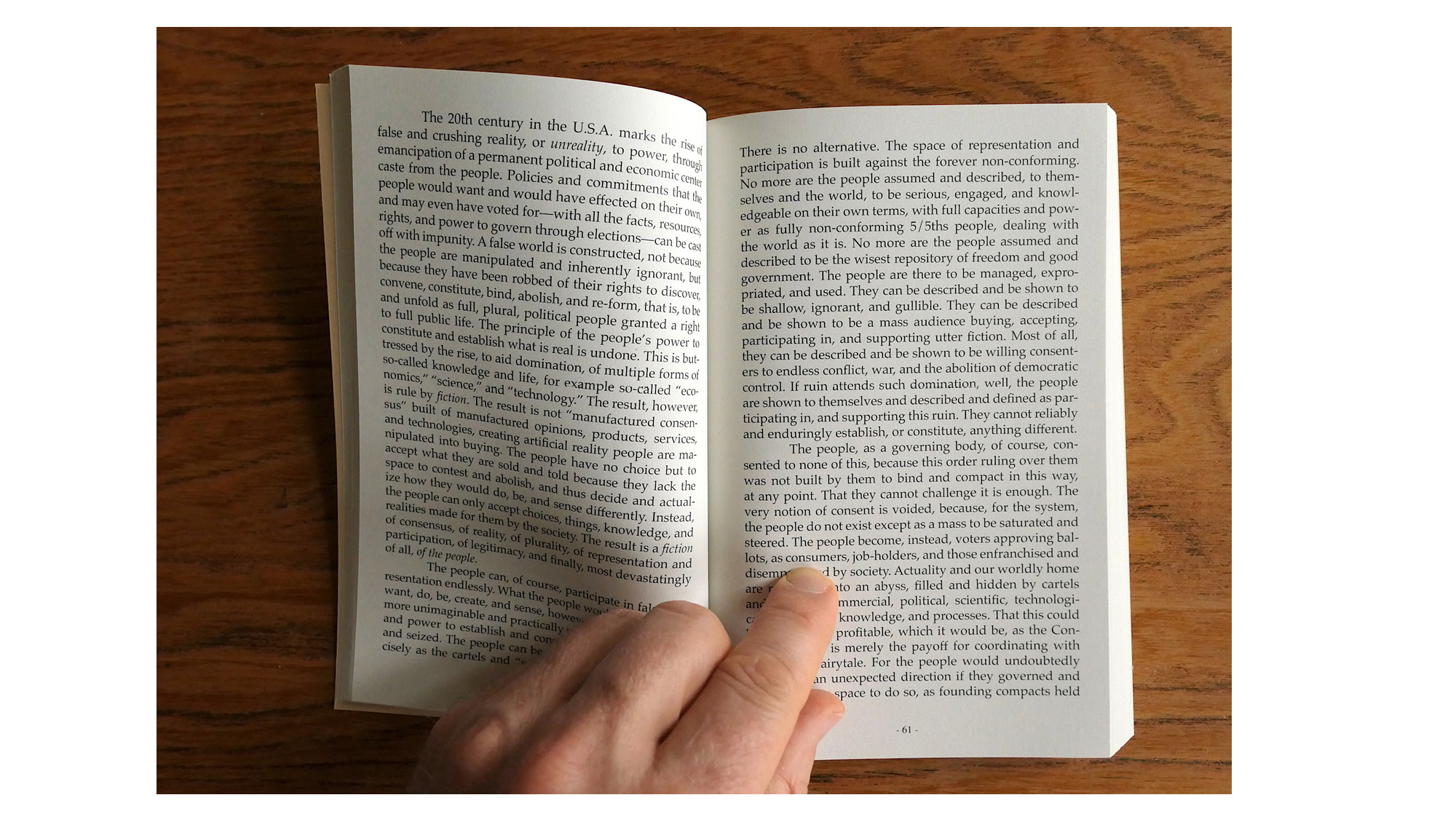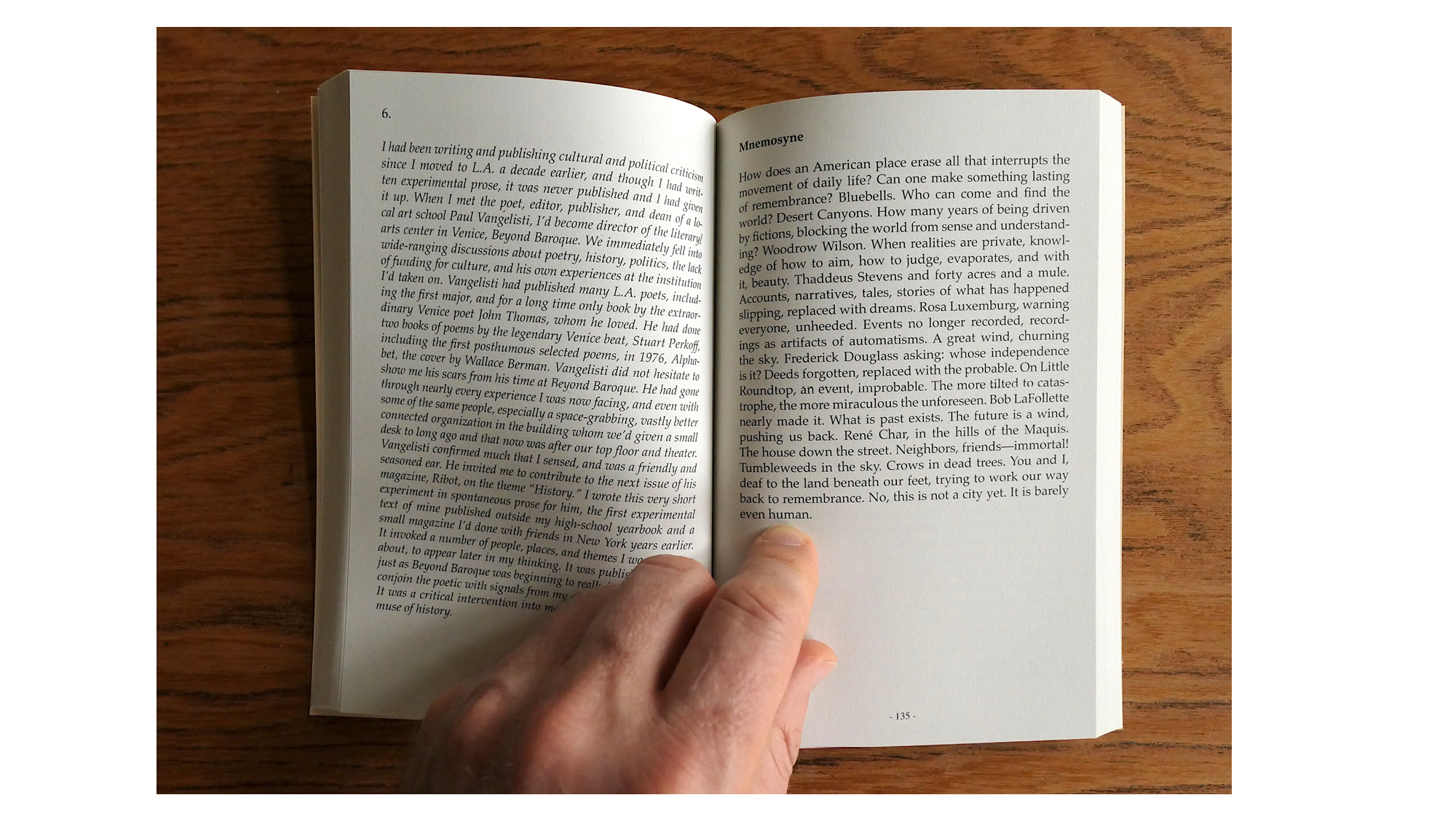ISBN: 978-0-9889375-1-2
11,4 x 17,8 cm (softcover)
288 pages
Published: September 2014
→ les presses du réel (EU)
→ DAP (US)
FRED DEWEY is a writer, teacher, editor/publisher, curator, and co-founder of the Neighborhood Councils Movement in Los Angeles. He directed Beyond Baroque Literary / Arts Center in Los Angeles from 1995-2010 and has edited, published, and designed twenty books and anthologies, featuring work by Ammiel Alcalay, Simone Forti, Jean-Luc Godard, Daniel Berrigan, Abdellatif Laabi, Jack Hirschman, Christoph Draeger, Ed Ruscha, Diane di Prima, and more. His writing has appeared in the anthologies Architecture of Fear (Princeton Architecture), Most Art Sucks (Smart Art), Cork Caucus, and in magazines and newspapers such as the Neighborhood Councils Movement Newsletter, the Journal of Aesthetics & Protest, New Statesman, LA Weekly, LA Times, Metropolis, Venice Beachhead, LA Forum for Architecture & Urban Design, and Coagula. Dewey has performed with the dancers and artists Simone Forti and Jeremiah Day at London’s ICA, New York’s Ludlow 38, and Berlin’s Errant Bodies. He teaches in Berlin and in the graduate fine art program at ArtCenter College of Design in Pasadena, California.
The School of Public Life
by Fred Dewey
Drawing on two decades of interventions in politics and culture, Fred Dewey's The School of Public Life records the author's efforts to revive and rethink public space from Los Angeles to Berlin and beyond. Drawing on manifestoes, lectures, letters, and experimental texts, the book chronicles one person's efforts to secure a space for public reality, culture, appearance, and power. From helping to found neighborhood councils in Los Angeles to directing Beyond Baroque, a public space for poetry, art, sound work, publishing, and debate, featuring discussions of the 1992 L.A. riots, Black Mountain College, and the Montgomery Bus Boycott, Dewey recounts a lived experience of self-government face to face with the rise of manufactured reality and an unknown political history. How can we answer the falsehoods of economics, parties, and a new slavery of constructed powerlessness? Working from the examples of Hannah Arendt, poet Charles Olson, writer John Berger, Rosa Parks, Martin Luther King, Jr., and others, Dewey's account of life experiences and thinking, public gesture proposes a new kind of school, one powerful enough to address all our conditions – a school for the people and their life.
The School of Public Life is the fourth issue of the new book series Doormats published by Errant Bodies Press. The series aims at contributing to the now, addressing issues that are present and that demand presence.
"Essential, rewarding, inspiring. For anyone interested in the intersection between art and politics, both as a theoretical problem and practical struggle, and equally aimed for those who have been, are, or are thinking to enter into public life at one scale or another. The book collects texts – open letters, essays, talks, missives, manifestos and polemics – over twenty odd years with the key themes being the successful establishment of Neighborhood Councils in Los Angeles and the connection of poetry and politics. Like a series of snapshots from the frontlines of praxis, each text emerged from/for a specific occasion, and together they form an evolving argument and insight, with fantastic introductions to each chapter weaving the fragments into a whole. Dewey's approach is equally at home with Abe Lincoln and Jean Baudrillard, drawing especially on a novel and compelling reading of Hannah Arendt and her over-looked republicanism. Both practical and theoretical, Dewey writes in the "public-intellectual" tradition of Arendt and Chomsky, producing an at times dense and challenging style but one that is highly personal, ultimately accessible and generous, aimed for the thinking citizen. For anyone who's been battered by the system or burned out in attempts to effect change, or who sees art and politics as essentially linked, this book will offer real gems, practical tips, inspiration, solace. Read it! – the steam coming out from your ears as all the wheels work will be satisfaction enough!" – Jeremiah Day



